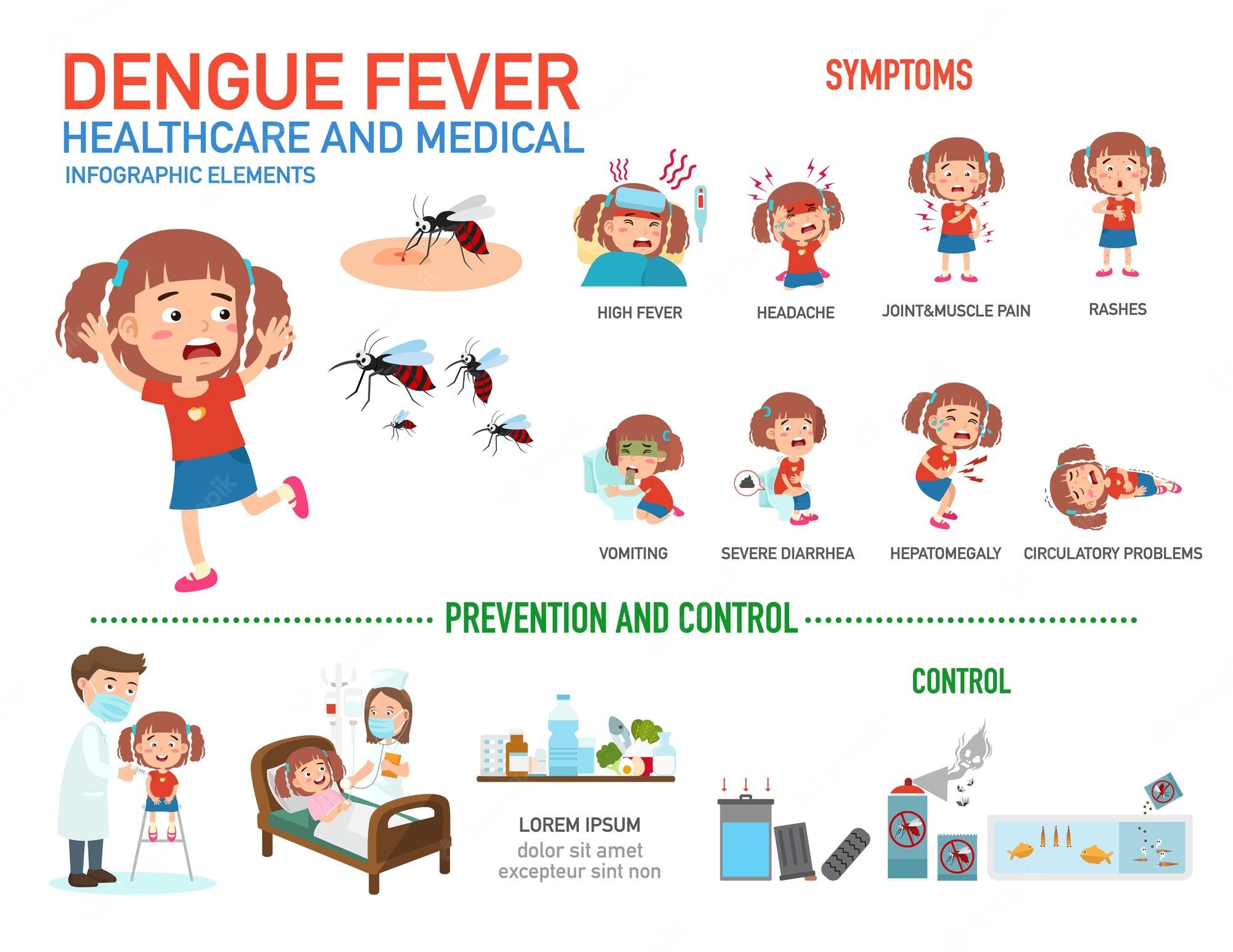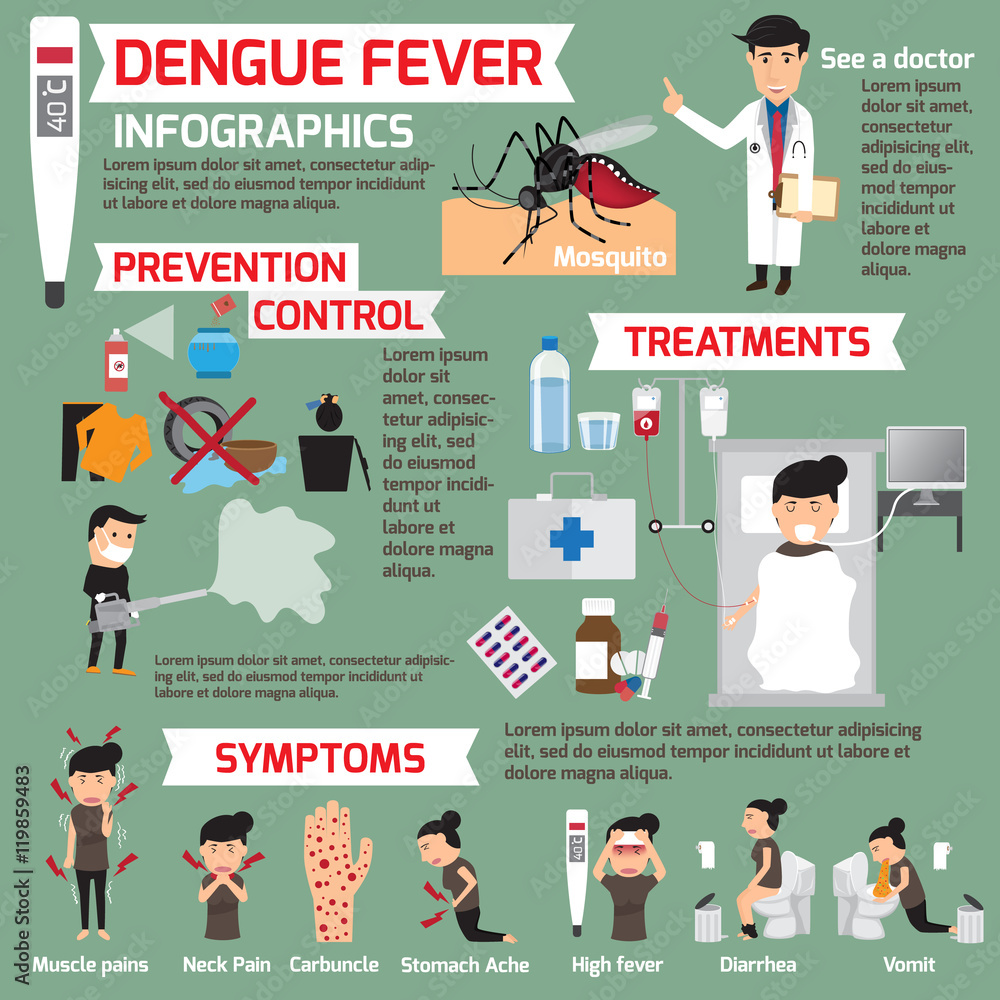Dengue Fever What You Need To Know About Virus And Symptoms
Basic information about and an overview of dengue. Dengue is a viral disease transmitted by mosquitoes (especially aedes aegypti) and is widely distributed throughout the tropics and subtropics.dengue classically presents with high fever, headache, body aches, exanthem, and generalized lymphadenopathy. In the united states, there is a dengue vaccine recommended for use in children 9 through 16 with laboratory confirmation of a previous dengue infection, living in areas where dengue is common.
Dengue Symptoms & Precautions GBH American Hospital
It is transmitted by mosquitoes mainly in tropical and subtropical areas of the world. It is common in warm, wet areas of the world. When the world mosquito program began, dengue fever was the primary focus of our research.
It is still an important focus.
It is caused by any one of four closely related dengue viruses (called serotypes), which can lead to a broad spectrum of symptoms, including some that are extremely mild (unnoticeable) to those who may require medical intervention and hospitalization. Dengue fever is an infectious disease carried by mosquitoes and caused by any of four related dengue viruses. Epidemiology dengue virus infections occur predominately in tropical and subtropical regions 3. As of 30 april 2024, over 7.6 million dengue cases have been reported to who in 2024, including 3.4 million confirmed cases, over 16 000 severe cases, and over 3000 deaths.
While a substantial increase in dengue cases has been reported globally in the last five years, this increase has been particularly pronounced in the region of the americas, where the number of cases has already exceeded It can cause a range of symptoms including fever, headache, pain behind the eyes, nausea, vomiting, aches and pains, and rash. Dengue in its mild form causes fever and a rash and lasts about a week. Severe dengue can cause shock, internal bleeding, and death.

Dengue fever usually results in abrupt onset of high fever, headache, myalgias, arthralgias, and generalized lymphadenopathy, followed by a rash that appears with a recurrent fever after an afebrile period.
Dengue fever causes a high fever — 104 f (40 c) — and any of the following signs and symptoms: Most people recover within a week or so. This is called severe dengue, dengue hemorrhagic fever or dengue shock syndrome. Asymptomatic infections are uncommon, mild cases happen frequently [8];
If symptoms appear, they typically begin 3 to 14 days after infection. Continue to have increased suspicion of dengue among people with fever who have been in areas with frequent or continuous dengue transmission within 14 days before illness onset. Dengue fever is an illness spread by the bite of mosquitos infected with one of the dengue viruses. Getting infected a second time increases your risk of serious symptoms.

Learn about dengue viruses, how dengue spreads, how to prevent dengue, and the areas with risk of dengue.
Most people who get dengue will not have symptoms. But for those who do, the most common symptoms are high fever, headache, body aches, nausea, and rash. Some people develop severe dengue and need care in a hospital. In severe cases, dengue can be fatal.
You get dengue fever through the bite of an aedes mosquito infected The centers for disease control and prevention (cdc) is issuing this health alert network (han) health advisory to notify healthcare providers, public health authorities and the public of an increased risk of dengue virus (denv) infections in the united states in 2024. Several factors are associated with the increasing risk of spread of the dengue epidemic including, the changing distribution of the vectors (chiefly aedes aegypti and aedes albopictus), especially in previously dengue naïve countries; The consequences of el nino phenomena in 2023 and climate change leading to increasing temperatures and high rainfall, humidity among others;

Threat world health day 2014 organisms are small that carry serious diseases t i c k s s a n d f l i e s m o s q u i t o e s common vectors severe dengue is a potentially deadly complication due to plasma leaking, fluid accumulation,
Dengue fever can be a painful, debilitating disease but is rarely fatal. Dengue is a viral infection.it can be caused by four related viruses. You can get it if an infected mosquito bites you.
